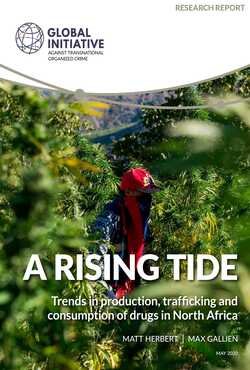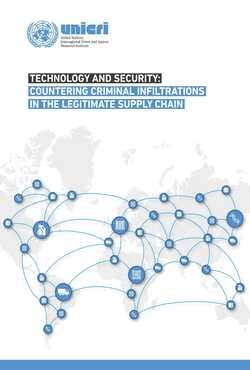By Matt Herbert and Max Gallien
This report offers a sizing and analysis of the developing trends around drugs in the Maghreb. It begins by detailing the production of narcotics in the Maghreb, including both cannabis and poppies. Next, it focuses on the trafficking of these products, exploring the types of drugs that transit the region, the routes they take and the groups involved in their movement.
The report then looks at drug consumption trends in the Maghreb, before detailing the impacts of narcotics on state capacity, security and public health and ending with brief recommendations.
Geneva: The Global Initiative Against Transnational Organized Crime. 2020. 65p




